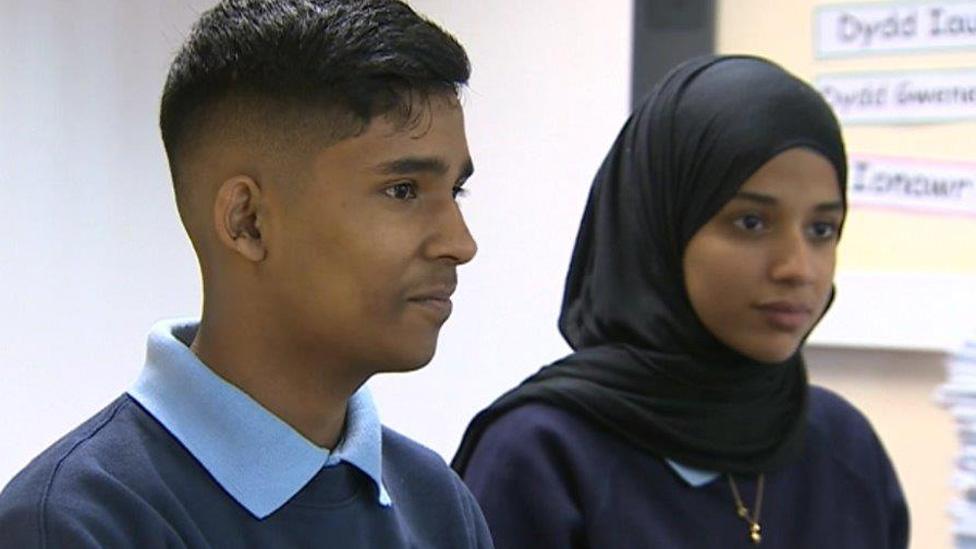Islamophobia: The Muslim family who 'ran away' after abuse
- Published
Islamophobia: 'You'd be very pretty if you were white'
A Muslim family fled their hometown after enduring a campaign of Islamophobic abuse and intimidation, they have revealed.
Ayesha Abdol-Hamid, 23, was a teenager when her parents made the decision to leave Skewen, Neath Port Talbot and start a new life in Cardiff.
An organisation which supports Muslims has warned of a rise in Islamophobic hate crime in Wales.
Welsh police received 63 complaints of hate crimes against Muslims last year.
But the number of incidents is likely to be far higher because 43% of victims do not report hate crimes due to a lack of confidence in the police, said Sahar Al-Faifi, manager of Muslim Engagement & Development (MEND) , externalin Wales and west England.
In the last two years, Ms Al-Faifi said MEND had dealt with 418 cases of Islamophobic hate crime in Wales and England.
Warning: This article contains racist language
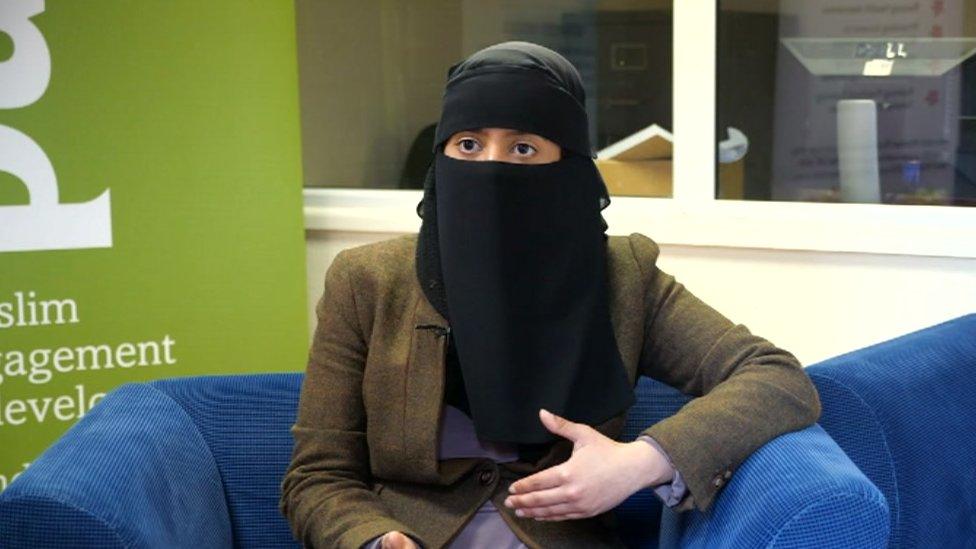
Sahar Al-Faifi said MEND had dealt with 418 cases of Islamophobic hate crime in Wales and England in the last two years
The warning comes after police recorded a 40% surge in hate crime against people in England and Wales because of their religious beliefs, more than half of which was aimed at Muslims.
Ayesha Abdol-Hamid, the daughter of a Pakistani mother and Welsh father, grew up in Skewen, Neath Port Talbot.
"It got really bad - people would come with balaclavas on and surround our house at night," she recalled.
"There was someone who put a nail through our doorbell; rubbish was dumped in our garden; and we had a very hateful phone call as well.
"My mum received that and we had to call police. That was one of the hardest experiences because it was very aggressive. They just repeated the word 'Paki' three times."
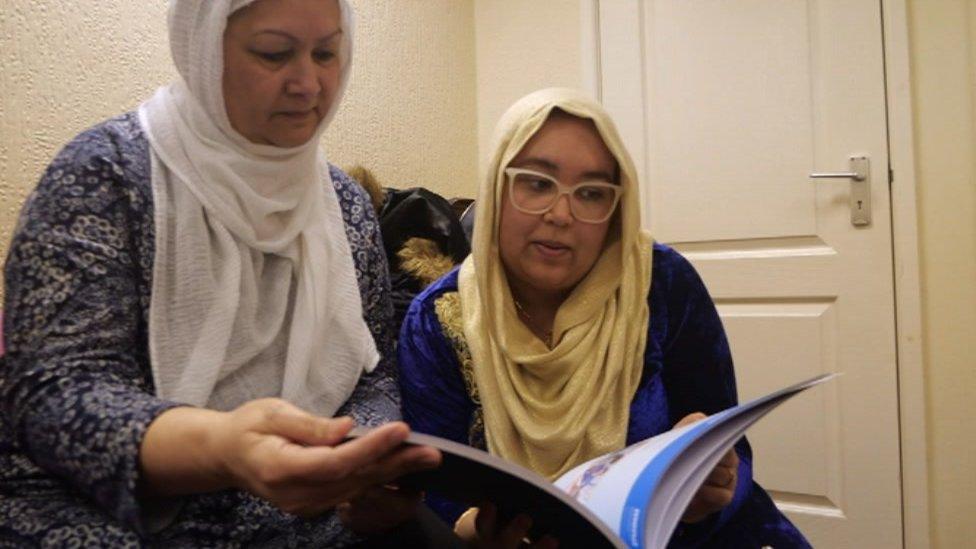
Ms Abdol-Hamid, right, said defending herself from physical assault as a child became the norm
The family moved to Skewen when Ms Abdol-Hamid was six, and it was not long before she was the target of physical bullying.
"On the first day of school, I had a black eye from another boy," she said.
"Growing up, I though it was normal to keep defending myself in fights just because of the colour of my skin."
Ms Abdol-Hamid said the emotional effect of being racially abused as a child is difficult to put into words.
"When someone tells you to go back to your own country or calls you a Paki, the hurt ... it is so hard to express," she explained.
"Someone saying something about you that is about who you are ... it's like questioning your existence."
The 23-year-old photographer added: "It is really, deeply hurtful. It is worse than if someone physically attacks you.."

You may also be interested in:

Ms Abdol-Hamid's mother, Shahida Nasreen Kahn said it broke her heart knowing Ayesha and her brother were going to school and being racially abused.
"It was really heartbreaking because they are innocent," said Ms Nasreen Kahn.
"I heard children calling her names from the window."
Asked whether there was any lasting damage, she replied: "You carry it with you; it doesn't go away."
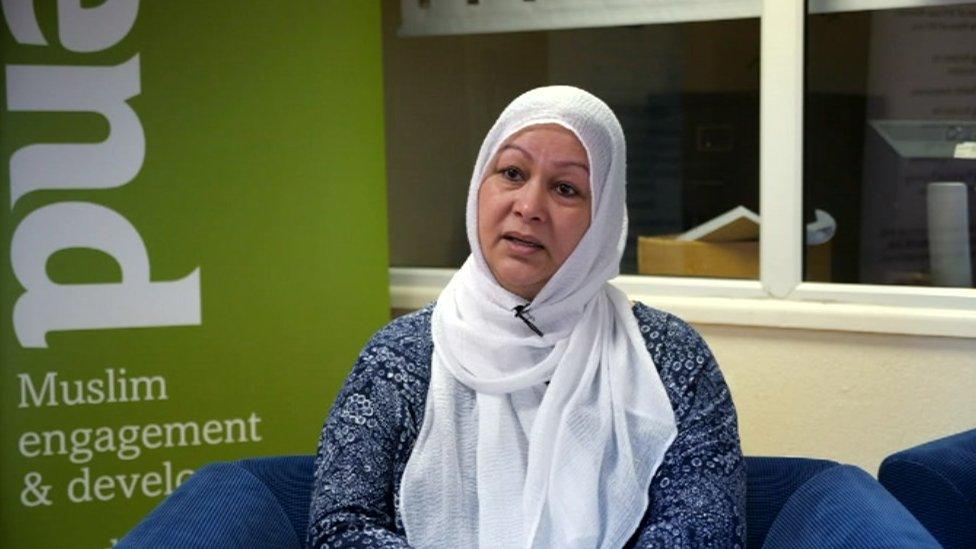
It was "heartbreaking" knowing her children were on the receiving end of racist abuse, Ms Nasreen Kahn said
After the threatening phone call, which came in 2010, Ms Nasreen Kahn said she "felt we had to run away".
Despite feeling safer in Cardiff due to its more multicultural population, both women said they had noticed a rise in Islamophobia in recent years.
Ms Al-Faifi said Muslim women are more likely to be victims of Islamophobic hate crime, and that it could have a lasting impact on their lives.
"I am visibly Muslim and I am a woman of colour, so I have faced triple discrimination against my gender, my faith and my race," she said.
"[Muslim women] might feel safe most of the time but it only takes one incident to knock that confidence.
"It is really sad because what we want to see is women who are confident and participating in public life - working, integrating into society - but it only takes one incident to ruin the whole thing."
She added: "The issue is multi-faceted. It's a communal issue, it's a political issue and it's a police issue, and unless we, as a Welsh society, work collectively to tackle it, it will not disappear."
- Published16 October 2018
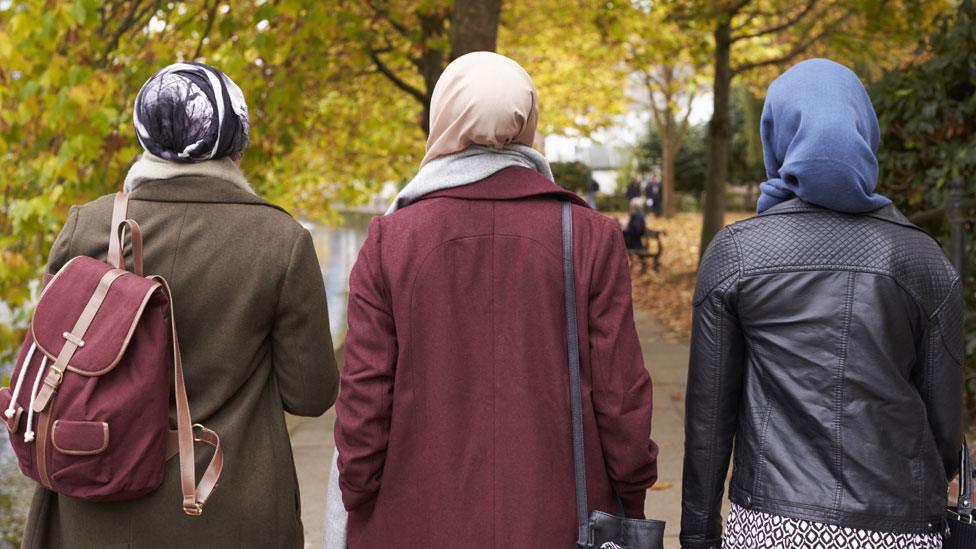
- Published27 May 2018
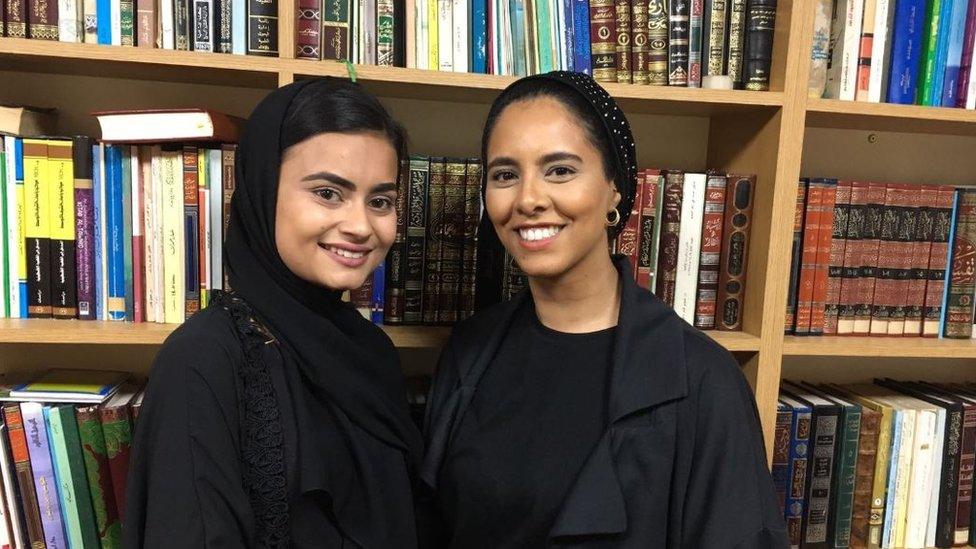
- Published3 April 2018
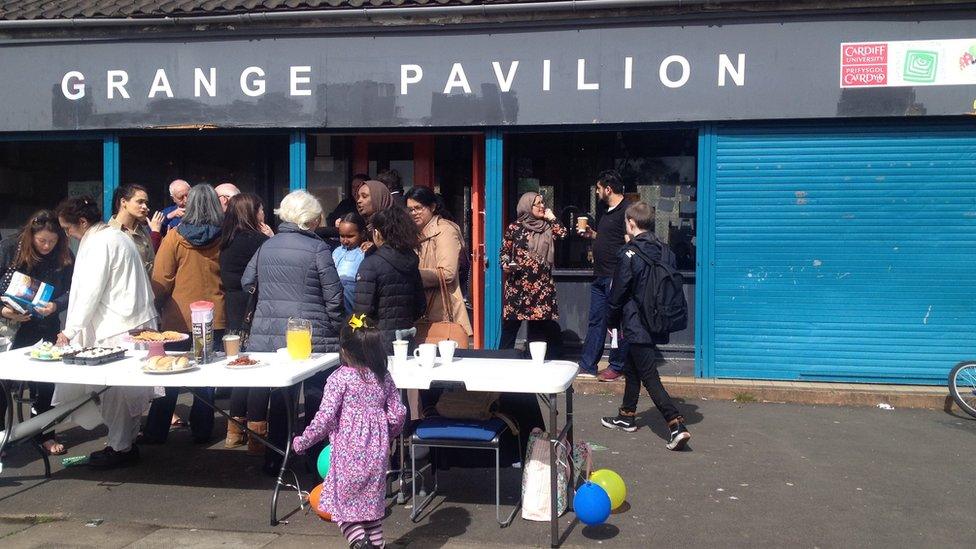
- Published15 January 2018
